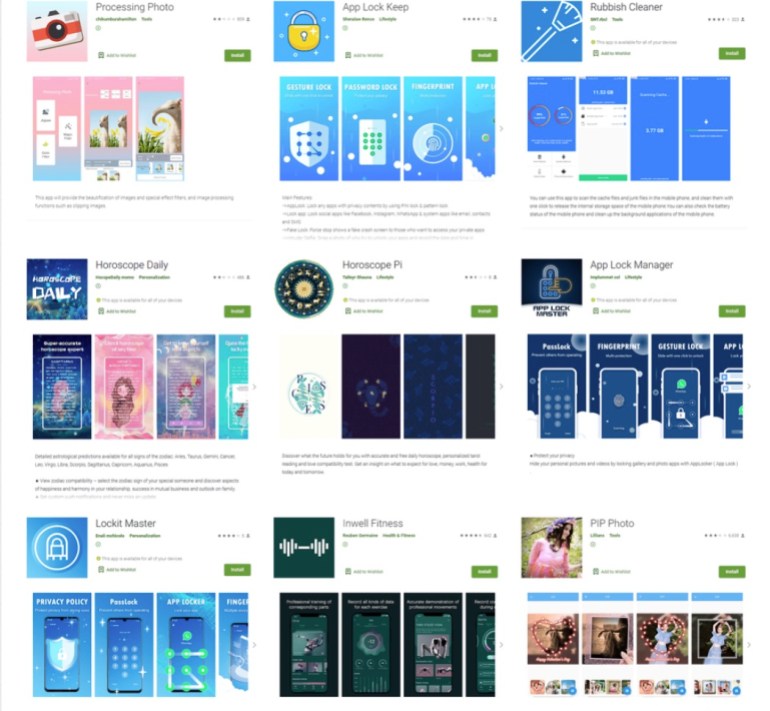Google is still racing to pull Android apps that commit major privacy violations, with Ars Technica noting that Google has removed nine apps from the Play Store.
The company's web analysts discovered that Trojans in some popular applications among users steal login details of their Facebook accounts, and the number of aggregated malware downloads reached more than 5.8 million downloads, presented as interesting and easy-to-find applications such as HorScope. Horoscope Daily and Rubbish Cleaner.
The apps tricked users by loading the Facebook login page, by downloading JavaScript files from a command server and controlling them to "hijack" credentials and passing them off from the application (and thus the command server), in the process stealing cookies.
Facebook accounts were the targets of this operation, but the vandals could also target user accounts for other Internet services such as banks or government institutions.
These apps tricked users by loading the Facebook login page (social networking sites)
It detected 5 different types of malware, but all of them used the same JavaScript files and file formats to pass information.
The most downloads were for an app called PIP Photo, which was downloaded more than 5.8 million times, and the second app with the most downloads was Processing Photo, with more than 500,000 downloads. It was as follows:
Rubbish Cleaner with over 100,000 downloads.
Inwell Fitness with over 100,000 downloads.
Horoscope Daily with over 100,000 downloads.
App Lock Keep has more than 50,000 downloads.
Lockit Master with more than 5 thousand downloads.
Horoscope Pi with over a thousand downloads.
App Lock Manager 10 downloads.
Google told Ars that it has banned all app developers from the store, although this may not be a huge deterrent as offenders can likely create new developer accounts.
Google may need to scan for malware itself to keep attackers out.
But how could these applications deceive so many users, and why couldn't Google's automated scanning procedures stop this work?
Google's automated scan doesn't monitor much malware that a user can download from outside the Play Store, the subtleties of this technology may have helped rogue apps bypass these defenses and leave victims unaware that their Facebook data has fallen into the wrong hands.
Whatever the reason, it is safe to say that you have to be careful about downloading utilities from unknown developers no matter how popular they are.

